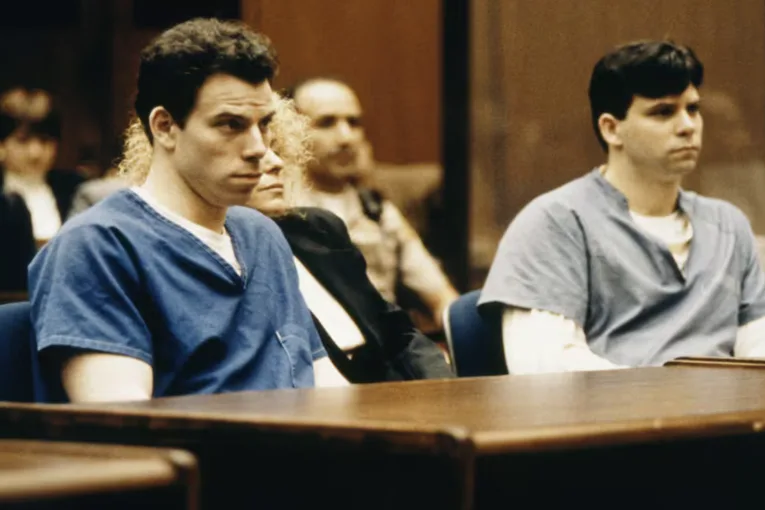
LOS ANGELES, CA – In a recent article titled “The Menendez Brothers and the End of the Progressive Prosecutor,” published by The Intelligencer, Lara Bazelon looks at the case of Lyle and Eric Menendez—who were sentenced to life without parole for the 1989 murders of their parents—as a representation of the issue of mass incarceration.
According to Bazelon, the Menendez brothers, now in their 50s, might soon face a turning point that would allow them to be immediately eligible for parole.
In October, then-Los Angeles District Attorney George Gascón invoked a California law allowing the resentencing of certain prisoners, recommending a sentence that could grant the brothers parole eligibility.
However, Bazelon points out, the changing of political tides in Los Angeles could hinder their hopes for release.
Bazelon explains that in November, voters replaced Gascón with Nathan Hochman, a self-described “hard middle” prosecutor who plans to review Gascón’s decisions.
According to Bazelon, Hochman could withdraw the recommendation for the Menendez brothers’ resentencing, a decision that could affect not only their case but also many others.
Bazelon notes that, under Gascón, more than 300 individuals were resentenced under the “interests of justice” law, a statute offering second chances to prisoners who have demonstrated rehabilitation.
Bazelon frames this development within a broader trend, what she describes as the decline of the progressive prosecutor movement.
She states that across the U.S., voters have rejected candidates advocating for reform, favoring those promising stricter approaches to crime, citing examples specifically in San Francisco and Alameda County, where recalls ousted the progressive district attorneys.
The Menendez case, Bazelon writes, exemplifies the challenges of addressing mass incarceration.
She acknowledges the Menendez brothers’ wealth and notoriety make them unique, but asserts that they are part of a larger group of aging prisoners convicted of violent crimes who have reformed, but remain behind bars.
Bazelon argues that refusing second chances for this population not only wastes taxpayer money—California reportedly spends over $130,000 annually per incarcerated person—but also wastes human potential.
Bazelon concludes by expressing optimism for what she terms the “Prosecutor 2.0 Era,” urging middle-ground prosecutors like Hochman to consider the benefits of rehabilitation and second chances.
And, she warns that rejecting opportunities for parole for rehabilitated prisoners harms both individuals and society, creating a situation in which “we all lose.”